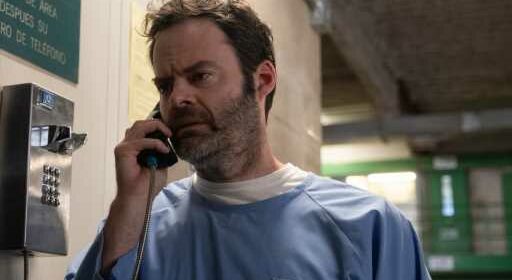‘Barry’ Cinematographer Carl Herse On Working Alongside Bill Hader For The Final Season: “As Cinematographer, This Is The Dream”

For the final season of Barry, cinematographer Carl Herse had the opportunity to work alongside only one director, Bill Hader, for the entire season. After an escape from prison midseason, the story jumps forward 10 years, which presented an interesting challenge for Herse, who needed to visually “express that time passed, but still make the show feel like Barry.” Their solution was to focus on Barry (Hader) and Sally (Sarah Goldberg), along with their son, rather than all of the major characters, and build out from there. Although ending the show is bittersweet for Herse, he says he couldn’t be happier with how it ends.
Related Story
'Barry's Henry Winkler On The Moment Gene Cousineau Snapped, Prison Theater, His "Dreaded Fear" Of AI And Takeaways From The WGA Strike: "America Has Literally Eaten Itself" – Deadline FYC House + HBO Max
DEADLINE: What are the biggest differences between your work on season three and season four?
CARL HERSE: The biggest difference between our work on the two seasons is that we have only one director (Hader). Rather than treating the show a little bit more episodically this season, the entire season is essentially one long story that has a very consistent tone and language. I think that this show has kind of evolved season after season and found its voice, particularly as Bill has found his voice as a director. And season four is really the best example of the tone that he’s been going for, so from a filmmaking standpoint, rather than shifting gears between who the leader on set is, we have one clear vision and the entire season was approached as a consistent story.
Usually the way it works on a television show, is you have a showrunner and you have a revolving door of directors coming in, but the directors are really just trying to achieve the showrunner’s vision. And while there are some very visual showrunners out there in the world, many of them have more of a writing background and think about storytelling in terms of dialogue and plot structure. Whereas Bill has a very strong visual component to how he wants to tell the story. And because he is the creator of the story, and the producer and the showrunner, he really has to answer to no one. He can just pursue the vision that he wants, and he’s really strong at taking a scene that might be a page of dialogue and reducing it down to an image. As cinematographer, this is the dream because we are really thinking about storytelling with the camera and not just explaining the story through dialogue.
DEADLINE: With the time skip mid-season, how did you visually differentiate those periods?
HERSE: It was an interesting challenge. My favorite episode of the season is 405, and the goal was to express that time had passed, but still make the show feel like Barry. We made lots of little adaptations to how we would normally shoot the show so that the language is still there, but we made certain lens choices. There were sound design choices, there was obvious ones like hair, makeup and aging choices that were done, but it was really about trying to find a subtlety to it.
What was really interesting about the time jump was that instead of jumping forward and telling everyone’s stories and catching up with all of our major characters, we focus on Barry and Sally and really dig into what their experience is. You learn a lot about what their last eight years have been like and you meet their child. It’s approached very visually without an overuse of dialogue. A lot of it is these long meandering shots of Barry and his son walking through a field, or Sally watching her coworkers or observing something. I love that episode because it’s kind of its own one-off story. It’s like this eerie, gothic tragedy with a supernatural threat almost looming over them – the threat of being found out. Barry’s protecting the truth from his son and basically trying to protect a lie about who he and Sally are. Barry finally has the opportunity to live the life that he’s been pursuing, but with this threat hanging over everything and the dread and the darkness there. And that was obviously expressed really in a compelling way when Barry hears the knock at the door and steps out into the blackness, and you just feel this sense that the blackness is creeping into their lives and clouding his vision at this point, but he’s still going to stand up to it and try to protect this life he built.
Must Read Stories
“The Flash’ Losing Dash With $55 Million U.S. Opening: Here’s Why
‘Metropolis’ TV Series Not Going Forward Amid Writers Strike & Mounting Pre-Production Costs
Lionsgate Whets Appetite For ‘Hunger Games: Songbirds & Snakes’ At CineEurope
‘Asteroid City’ Rocks Strongest Limited Opening Weekend In Years
Read More About:
Source: Read Full Article





